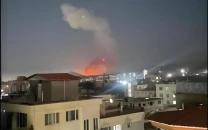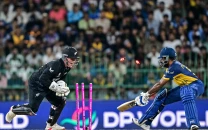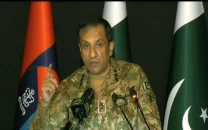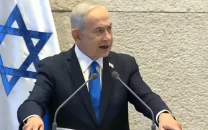Kashmir — where our heart is
Pakistan’s position on Kashmir remains unchanged

While the Indian barbarism in Kashmir has been going on for more than seventy years, it was taken to the next level on August 5, 2019 when the fascist Modi government abrogated Article 370 and 35A of the Indian constitution — the former acknowledges the special status of the state of Jammu and Kashmir in terms of autonomy; and the latter confers special rights to the permanent residents of the state and impedes citizens from other parts of India from settling permanently in the occupied state, buying property there, and taking up state government jobs. Revoking the mentioned articles, New Delhi declared the occupied region an Indian territory, and put the valiant Kashmiris under a lockdown, denying them access to food, water and medicines, and blocking TV, telephone and Internet connections. The oppressive curbs, ensured through nearly a million-strong Indian occupation force fanned out all across the occupied region, continue a year on.
The Kashmir issue is not just a territorial dispute but is linked to the inalienable right of the Kashmiris to self-determination. Per international standards, all members of a nation-state have the right to self-determination. Jammu and Kashmir — with a history of self-governance, having its own culture and languages as well as a population of more than 14 million people — fulfills all the provisions and requirements of a nation-state.
India has, however, never accepted this lawful right of the Kashmiris. Despite the UNSC Resolution 91, the Indian parliament passed a resolution in October 1957 and declared Kashmir as its integral part. From 1960 to 1964, India rejected the offer of mediation from Egyptian President Gamal Abdel Nasser, US President John F Kennedy and others. In March 1965, the Indian parliament passed a bill declaring Kashmir a province of India and decided to appoint a Governor in the state. India’s own representatives, including SP Agrawal and SR Bakhshi, told the UN Security Council in writing that India would not agree to a UN-proposed referendum in Kashmir under any circumstances.
In the late 1980s, a new struggle against the yoke of Indian occupation began in Jammu and Kashmir. Thousands of Kashmiris took to the streets and demanded a referendum in Jammu and Kashmir. As a result they were subjected to worst kind of atrocities that have resulted in the martyrdom of more than a hundred thousand innocent civilians so far. But the defiance of the Kashmiris continues.
History bears testimony to the fact that the post-partition Indian leadership did acknowledge the UNSC resolutions on Jammu and Kashmir as well as the right of Kashmiris to self-determination. But with the passage of time, Indian position on a Kashmir changed. India has backed off from its promises of granting Kashmiris their right to self-determination, and shied away from a negotiated settlement of the dispute with Pakistan.
On the other hand, Pakistan’s position on Kashmir remains unchanged. Islamabad considers occupied Kashmir a ‘disputed territory’ and demands implementation on the UNSC resolutions which acknowledge that the people of Jammu and Kashmir have every right to decide their political future. Due to Pakistan’s tireless efforts, on November 23, 2016, the UN adopted a resolution calling for the recognition of the Kashmiris’ right to self-determination. Through this resolution, Pakistan drew the world’s attention to Kashmir and the encroached rights of the Kashmiri people. Kashmir wants justice and the world must support them.
Published in The Express Tribune, August 5th, 2020.
Like Opinion & Editorial on Facebook, follow @ETOpEd on Twitter to receive all updates on all our daily pieces.















COMMENTS
Comments are moderated and generally will be posted if they are on-topic and not abusive.
For more information, please see our Comments FAQ